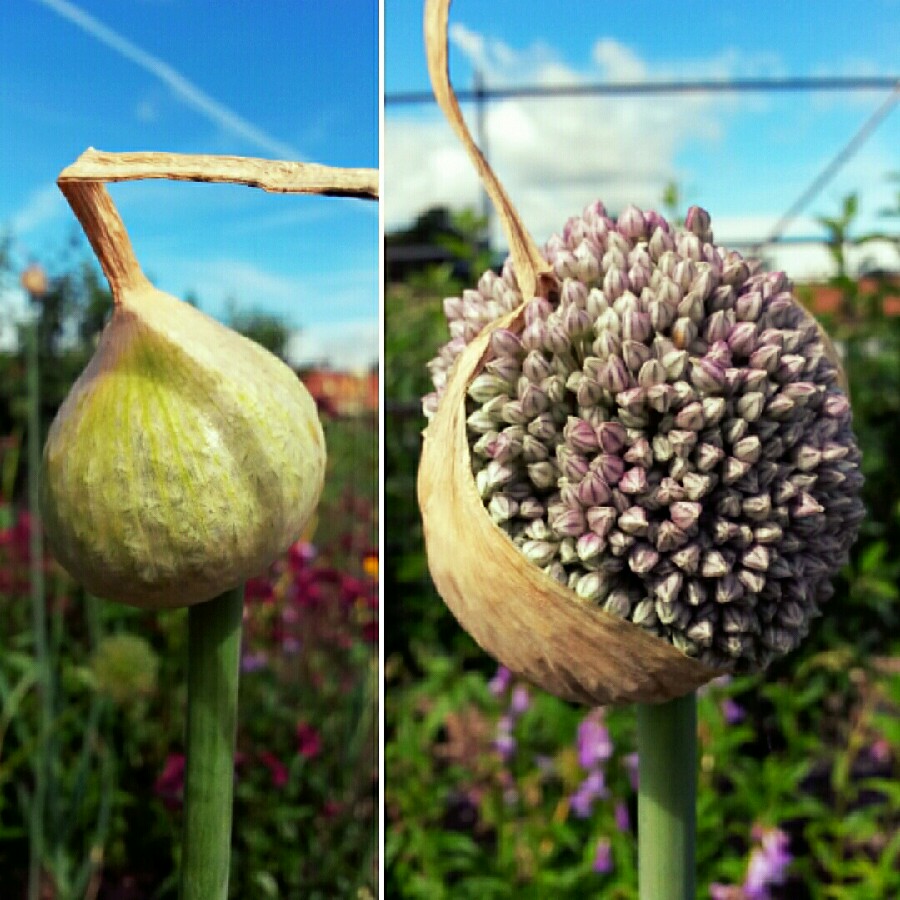
Allium ampeloprasum var. ampeloprasum
Elephant Garlic
Garlic, a member of the onion family, is an easy crop to grow, provided it has a sunny site, and fertile, well-drained soil. Elephant garlic is, as the name suggests, a very large variety. It is not a true garlic - actually a stem leek that makes a very large bulb.The cloves are also much larger, and milder flavour than true garlic. Plant in Autumn
Contributed by @cwakefield84
-
Full sun
-
Occasional watering
-
Frost Hardy: 23F (-5°C)
-
Free draining and fertile
Common name
Elephant Garlic
Latin name
Allium ampeloprasum var. ampeloprasum
type
Vegetable
family
Amaryllidaceae
ph
6.5 - 8.0 Acid - Neutral
Plant & bloom calendar
-
Best time to plant
-
When to harvest
full grown dimensions
 0.10 M
0.50 M
0.10 M
0.50 M
Allium ampeloprasum var. ampeloprasum
Garlic, a member of the onion family, is an easy crop to grow, provided it has a sunny site, and fertile, well-drained soil. Elephant garlic is, as the name suggests, a very large variety. It is not a true garlic - actually a stem leek that makes a very large bulb.The cloves are also much larger, and milder flavour than true garlic. Plant in Autumn
Planting
From Late Autumn TO Early Spring
Garlic is planted from bulb segments (cloves), so break up the bulb carefully into individual cloves prior to planting, and then plant the cloves pointed end up with the tips 1" (2.5 cms) below the soil surface, in fertile, dry soil, in a sunny site. Plant 6" (15 cmc) apart, with 1' (30 cms) between rows. Allow 15cm (6in) between individual cloves and 30cm (1ft) between rows. Plant the cloves so the tips are 2.5cm (1in) below soil surface. Deeper planting can encourage better yields on light soils, but do not plant deeply on heavy soils. After planting, garlic needs a cool, one- to two-month period at temperatures of 0-10°C (32-50°F) for good bulb development. Planting in late autumn or in early spring (depending on the cultivar) will provide the necessary chilling period.
























